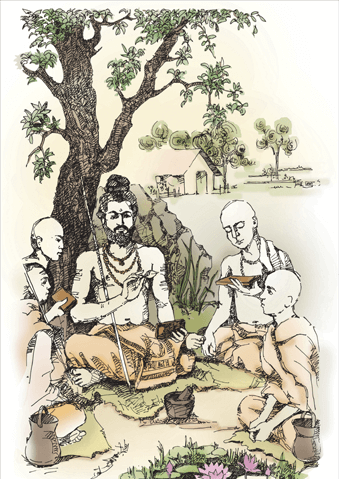Unlocking the Tricks of Ayurveda for a Well Balanced Way of living
Unlocking the Tricks of Ayurveda for a Well Balanced Way of living
Blog Article
Why You Have to Obtain It: The Transformative Power of Ayurveda Explained
Ayurveda, a classic system of medicine, supplies an one-of-a-kind viewpoint on health and wellness that transcends plain sign management. By highlighting the intricate equilibrium between mind, body, and spirit, it supplies a structure for understanding specific constitution through the idea of doshas. This customized approach not only addresses physical disorders however likewise cultivates spiritual and psychological wellness. As we discover the core concepts and methods of Ayurveda, it becomes obvious that its transformative prospective expands far past traditional health and wellness standards-- increasing the question of just how it might improve your understanding of wellness.
Comprehending Ayurveda's Core Concepts
Ayurveda, frequently explained as the "scientific research of life," is rooted in an alternative technique to wellness that links the physical, psychological, and spiritual dimensions of wellness. Central to Ayurveda are the principles of the 5 aspects, referred to as "Pancha Mahabhuta," which comprise earth, water, ether, air, and fire. These elements combine to form 3 key powers, or "doshas": Vata, Pitta, and Kapha, each standing for various mixes of physical and emotional qualities.


Recognizing these doshas is important for identifying a person's special constitution, or "Prakriti," which guides personalized health methods. Ayurveda stresses equilibrium, supporting for a lifestyle that harmonizes these energies with diet plan, natural treatments, and everyday routines. Furthermore, Ayurvedic principles insist that health is not merely the absence of disease however a state of optimal vigor.
The method of mindfulness and self-awareness is essential, encouraging individuals to establish a deeper link with their bodies and the setting. By identifying the interaction of physical and psychological elements, Ayurveda promotes a comprehensive understanding of health that encourages people to organize their wellness, promoting a path in the direction of alternative makeover.
Advantages of Ayurvedic Practices
Frequently integrating Ayurvedic techniques into day-to-day life can yield a multitude of benefits that boost general well-being. These classic practices concentrate on attaining harmony within the mind, body, and spirit, leading to improved physical health and wellness, psychological clarity, and psychological balance.
One substantial benefit of Ayurvedic methods is their ability to promote digestive system health and wellness. Individualized dietary recommendations, based upon an individual's dosha, can optimize nutrition absorption and minimize stomach concerns. In addition, Ayurvedic herbs and flavors, such as turmeric and ginger, have anti-inflammatory residential or commercial properties that can assist in the avoidance and management of persistent diseases.
Additionally, Ayurvedic practices highlight the value of day-to-day routines, referred to as dinacharya, which foster security and predictability in one's life. This uniformity can lower stress levels and enhance performance. Mindfulness methods, consisting of reflection and yoga, not only grow psychological strength but likewise enhance psychological regulation.
Lastly, by fostering a connection to nature and emphasizing holistic living, Ayurveda urges individuals to participate in self-care and cultivate a feeling of area. On the whole, the integration of Ayurvedic techniques can cause a much more balanced, vivid, and satisfying life.
Trick Components of Ayurvedic Healing
What are the essential elements that add to the effectiveness of Ayurvedic healing? At the core of Ayurveda lie three key parts: the principle of doshas, the focus on equilibrium, and the click here for more info all natural strategy to wellness. The doshas-- Vata, Pitta, and Kapha-- represent the distinct combinations of the 5 aspects that govern specific constitutions. Understanding one's dosha is vital for customizing therapies that bring back balance and promote health.
Equilibrium is a recurring motif in Ayurvedic recovery, reflecting the idea that health and wellness emerges from consistency within the body and between the individual and their atmosphere. Disruption of this equilibrium can cause disease, demanding targeted interventions to recover equilibrium.
Furthermore, Ayurveda embraces an all natural method, considering physical, psychological, and spiritual facets of health and wellness. This extensive viewpoint acknowledges that psychological well-being and way of life choices substantially influence physical wellness.
Integrating Ayurveda Into Day-to-day Live
Integrating the concepts of Ayurveda into every day life can dramatically enhance total wellness and promote a deeper connection to one's body and setting. By adopting Ayurvedic practices, individuals can grow balance and consistency within themselves, adjusting to their distinct constitution or dosha.

Incorporating herbal treatments and all-natural components into personal care regimens can better strengthen Ayurvedic principles. Making use of oils for self-massage, known as abhyanga, promotes circulation and relaxation. Furthermore, integrating reflection or yoga exercise can boost psychological clarity and emotional security, fostering an alternative strategy to health.
Lastly, recognizing ecological factors, such as climate and seasonal changes, enables individuals to change their way of livings as necessary, ensuring that their practices remain effective and supportive - Ayurveda. By weaving these concepts right into day-to-day life, one can experience extensive advantages, leading to a more well balanced and meeting presence
Individual Makeovers Via Ayurveda
The application of Ayurvedic principles into everyday regimens typically results in substantial This Site individual improvements, as people begin to experience extensive changes in both mental and physical health and wellness. By accepting practices such as dietary alterations, organic supplementation, and conscious reflection, numerous report increased power levels, enhanced digestion, and enhanced psychological durability.
Individuals often locate that the holistic technique of Ayurveda addresses not just symptoms, yet underlying discrepancies within the body and mind. For example, taking on a tailored dietary regimen based upon one's dosha can lead to weight monitoring, minimized inflammation, and far better overall vitality - Ayurveda. In addition, the consolidation of day-to-day self-care rituals, such as oil pulling or Abhyanga (self-massage), cultivates a deeper connection to one's body, advertising self-awareness and nurturing psychological health.
As experts delve much deeper into Ayurvedic ideology, they frequently find a restored feeling of function and clarity in their lives. This transformative journey motivates people to grow mindfulness, resulting in much healthier partnerships and a higher admiration for the here and now moment. Ultimately, Ayurveda equips individuals to organize their wellness, facilitating a enduring and purposeful transformation in their lives.
Conclusion
The transformative power of Ayurveda lies in its holistic technique, advertising consistency among spirit, mind, and body. By executing and acknowledging specific doshas customized practices, Ayurveda fosters optimal health and emotional durability. Its assimilation right into every day life motivates conscious living and much deeper links within areas. Inevitably, accepting Ayurveda can cause profound personal transformations, enhancing overall health and promoting an extra well balanced and harmonious presence. The concepts of Ayurveda provide important insights for growing a meeting and vivid life.
As we check out the core concepts and methods of Ayurveda, it becomes apparent that its transformative potential expands far past traditional wellness standards-- increasing the concern of just how it may reshape your understanding of wellness.
Ayurveda, often explained as the "scientific research of life," is rooted in an all natural approach to wellness that links the physical, mental, and spiritual measurements of health. At the core of Ayurveda lie 3 key components: the principle of doshas, the emphasis on balance, and the holistic strategy to health and wellness. Inevitably, Ayurveda empowers people to take charge of their health and wellness, helping with a read more lasting and significant improvement in their lives.
By executing and identifying specific doshas tailored methods, Ayurveda cultivates optimum health and emotional durability.
Report this page